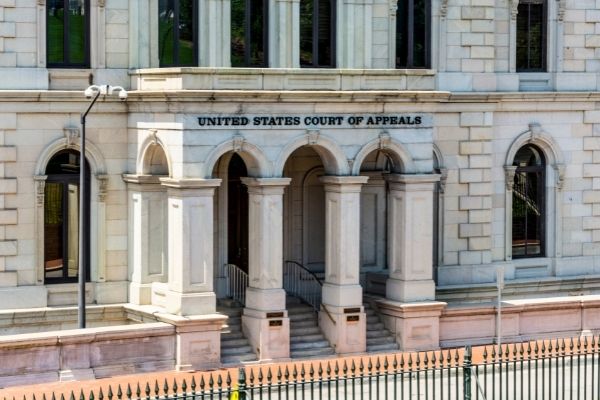Debunking the Process of Federal Appeals: What You Need to Know
Browsing the intricate realm of federal allures can typically appear like traversing uncharted waters for those unknown with the process. Understanding the subtleties of appellate court territory, the details of filing a notification of allure, offering an engaging quick, and making a convincing dental argument are important elements that can significantly influence the end result of a case. By deciphering the layers of intricacy surrounding federal allures, individuals can gain a clearer understanding right into the devices that control this vital stage of the legal system.
Understanding Federal Appeals Process
Looking into the detailed world of the government allures procedure unveils a organized and methodical journey with the judicial system. Federal appeals act as an essential system for evaluating choices made by lower courts. Understanding this process is vital for any individual involved in lawful process at the government degree.
The procedure typically begins with a celebration disappointed with a lower court's judgment submitting a notification of charm. This sets off an evaluation by a higher court, where a panel of courts assesses the legal arguments provided by both events. Briefs laying out the legal reasoning behind each party's setting are submitted, and oral arguments may be heard to clear up intricate issues.
The appellate court's choice is based on a comprehensive examination of the reduced court's process and the disagreements presented. When the appellate court gets to a decision, it can attest, turn around, remand, or modify the lower court's judgment, providing clarity and finality to the legal disagreement.
Appellate Court Jurisdiction Discussed
Appellate court jurisdiction refers to the scope of cases that a specific appellate court has the power to evaluate and decide upon. Unlike test courts that hear situations for the first time, appellate courts are restricted to evaluating choices made by lower courts.
Appellate courts have territory over certain sorts of situations, normally those entailing legal mistakes, procedural concerns, or concerns of law instead than accurate disputes. The territory of appellate courts is normally described in statutes and legislations that control the court system. Understanding appellate court territory is important for parties entailed in the allures process as it identifies whether a situation is eligible for review and the degree to which the appellate court can interfere in the reduced court's choice.
Filing a Notice of Charm
The initial action in commencing the federal appeals procedure includes filing a Notice of Allure with the appropriate appellate court. This crucial paper officially alerts the court and the other events associated with the instance that the appealing celebration intends to look for an evaluation of the reduced court's decision. Submitting a Notice of Charm is a stringent step-by-step need that sets the appellate procedure moving.
When preparing the Notice of Appeal, it is important to make sure compliance with the details policies and standards of the relevant appellate court. federal appeal attorneys. The record should typically consist of information such as the situation name, the lower court's name, the date of the judgment being appealed, and a succinct declaration indicating the premises for the appeal

Instruction and Dental Argument
In the appellate procedure, presenting composed briefs and taking part in oral debates play pivotal functions in advocating for the appealing celebration's placement before the appellate court. Briefs are detailed lawful files that lay out the parties' debates, legal authorities, and evaluation sustaining their positions. These composed entries provide the court with a comprehensive understanding of the realities of the case, the appropriate regulation, and why the appealing event believes the lower court's choice need to be overturned.
Complying with the entry and review of the briefs, oral disagreements use the events an opportunity to additional clarify their settings, resolve any kind of questions the appellate judges may have, and highlight crucial factors from their created briefs. Oral arguments are a possibility for the lawyers to convince the courts via spoken campaigning for and feedbacks to questions from the bench.
Both the written briefs and oral arguments are essential elements of the appellate process, allowing parties to offer their instance extensively and compellingly prior to the appellate discover this court. - federal crime attorney
Obtaining the Appellate Court Choice
The appellate court's choice is generally supplied in a written style and outlines the court's final thoughts on the lawful issues provided, the thinking behind their decision, and the judgment made. The time structure for getting the appellate court's choice can vary, however courts make every effort to offer prompt resolutions. Whether the appellate court attests, reverses, or remands the lower court's choice, understanding the ramifications of the judgment is crucial for all parties included in the appellate procedure.
Conclusion
Understanding the appellate court jurisdiction, filing a notice of appeal, preparing briefs, and presenting oral arguments are all important components of this process. Ultimately, receiving the appellate court decision can give quality and resolution to lawful disagreements.
As we progress from understanding the government allures procedure to exploring the ins and outs of appellate court territory, an essential aspect comes to light concerning the authority and limits of these greater courts in the lawful landscape. Appellate court territory refers to the range of cases that a particular appellate court has the power to make a decision and assess upon. Unlike test courts that hear cases for the first time, appellate courts are restricted to examining decisions made by lower courts. Recognizing appellate court territory is important for parties entailed in the charms process as it determines whether an instance is eligible for review and the level to which the appellate court can intervene in the lower court's choice.
